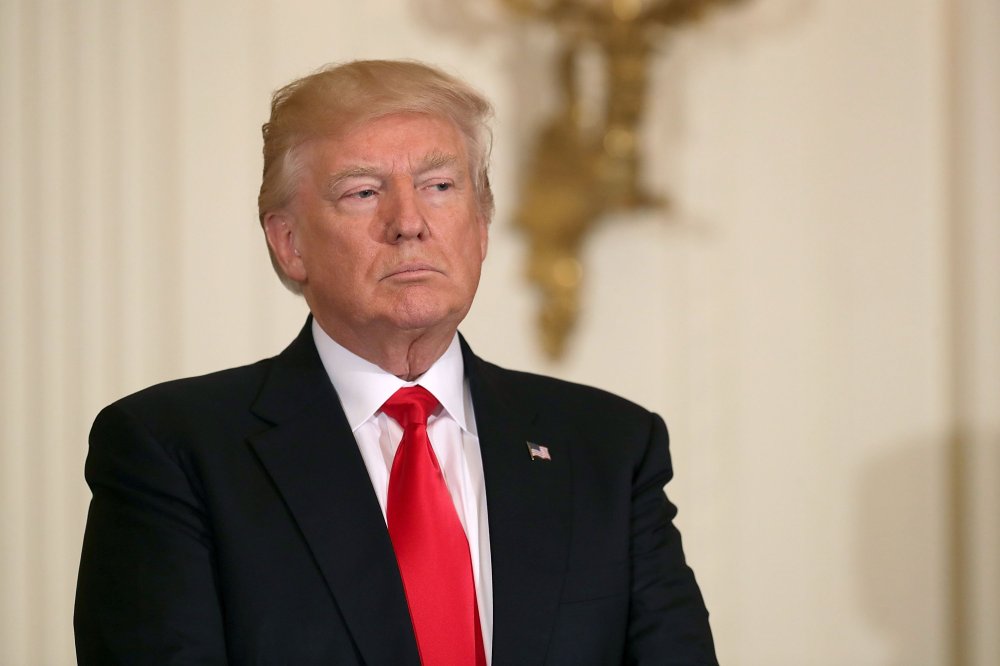As a rule, Donald Trump likes to pretend that every aspect of his presidential agenda is working flawlessly, to the historic benefit of all Americans. It therefore came as a bit of a surprise the other day when the president conceded during a radio interview that his controversial trade policies may lead to “a little pain” for the domestic economy.
“I’m not saying there won’t be a little pain, but the market has gone up 40 percent, 42 percent so we might lose a little bit of it. But we’re going to have a much stronger country when we’re finished.
“So we may take a hit and you know what, ultimately we’re going to be much stronger for it,” Trump said.
At the risk of sounding picky, the market has not gone up 40% or 42%. Since Trump’s inauguration, as of late last week, the Dow Jones Industrial Average has risen about 20%. That’s not bad, of course, but (a) Trump shouldn’t double the market’s performance just because he feels like it; and (b) market growth under this president ranks Trump below H.W. Bush, Clinton, Obama, Reagan, and FDR at comparable periods in their presidencies.
The more relevant point, however, is Trump’s belief that he’ll cause “a little pain” for the American economy now, taking a “hit” in the short-term, but the steps he’s taking will pay off for us in the long-term. At first blush, that’s not necessarily crazy: this president may be obsessed with instant gratification and impulsive antics, but if Trump had a real, credible plan to impose economic punishments now in order to help the country down the road, that could, theoretically, be a responsible, albeit uncharacteristic, move.
The trouble, however, is identifying that real, credible plan.
On NBC’s “Meet the Press” yesterday, Chuck Todd asked Peter Navarro, one of the president’s chief advisers on trade, “What specific action do you want from the Chinese to prevent these tariffs from being implemented?” Navarro replied, “We want fair and reciprocal trade. We want them to stop stealing our stuff.”
And while that may sound nice, it’s hardly a list of “specific actions.” And so, the host tried again. “What is the specific action?” Chuck Todd inquired. “How will we know that China is changing its behavior? Give me the specific action.”
Navarro again offered very little in the way of details. “Every American understands that, every day of the week, China comes in to our homes, the businesses, our government agencies, and the damage is on the order of about $1 billion a day,” the presidential adviser said. “And then, when you add to that damage the billion dollars a day in the trade deficit in goods we face, this country is losing its strength and wealth.”












